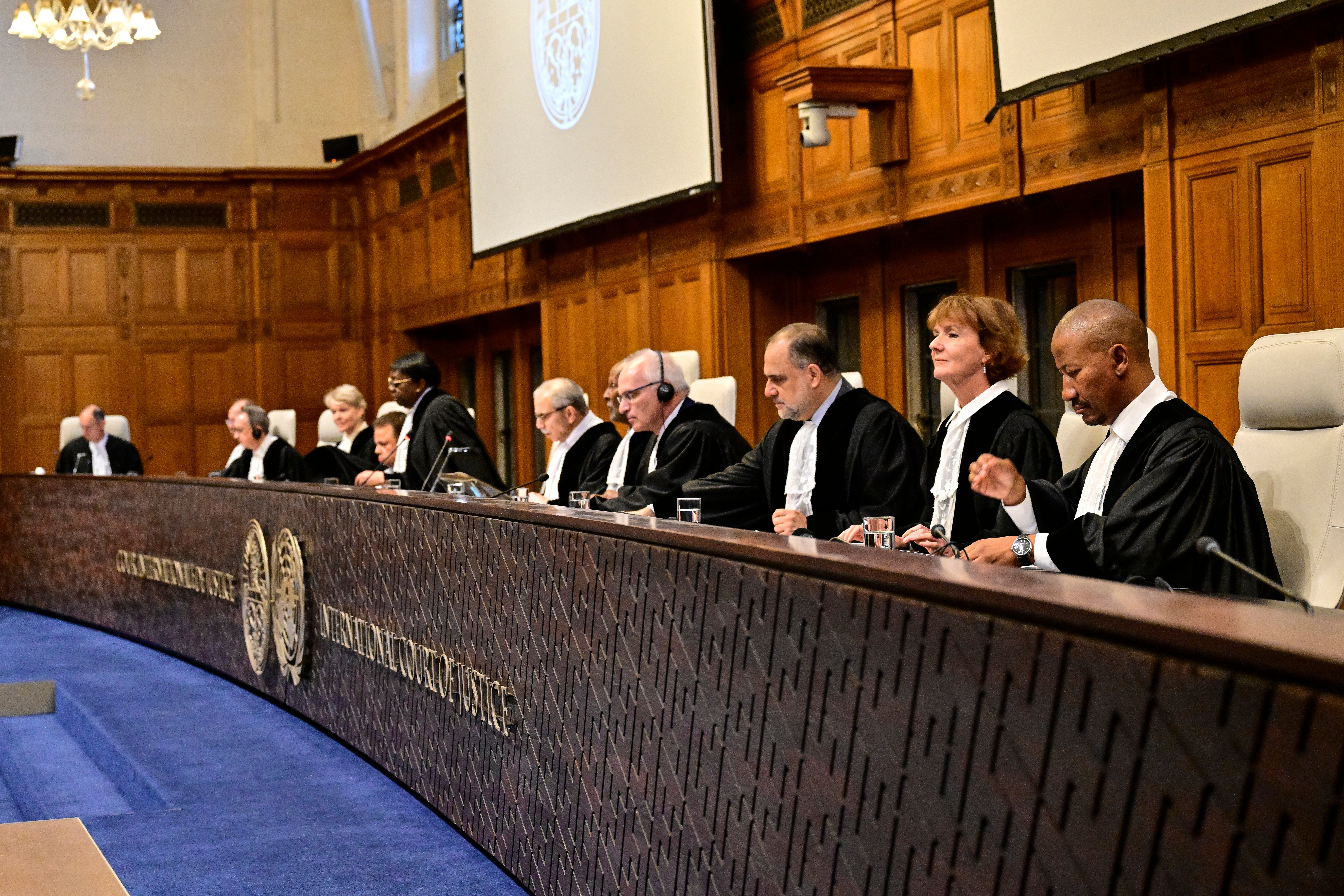The international court ruling over Rafah puts the US in a deeply awkward position
Israel has reacted with outrage to the case, writes Kim Sengupta, but it increases the chances of some nations imposing sanctions


Benjamin Netanyahu’s government had been expecting the judges at the United Nations’ highest court to accept, at least partly, South Africa’s case over a ceasefire in Gaza and had already gone on the offensive.
A senior Israeli spokesperson, Avi Hyman, declared before the decision was announced that “no power on earth will stop Israel from protecting its citizens and going after Hamas in Gaza”. While Gilad Noam, Israel’s deputy attorney general, said: “Calling something a genocide again and again does not make it genocide. Repeating a lie does not make it true.”
Officials said before the judgment came down that there was a low chance the International Court of Justice (ICJ) would reject South Africa’s request for a cessation of hostilities: a medium one that the court will accept the demand to halt the war in Gaza, and a medium-to-high chance that it would ask the Rafah offensive to be stopped.
It is the latter option that the court chose.
Officials had already indicated that Israel would not abide by any decision made by the court in the Hague. Although ICJ rulings are meant to be binding, it has no power to enforce them. It has, for example, ordered Russia to halt its invasion of Ukraine, without any effect.
The ICJ ruling, however, will further isolate Israel, coming, as it does, after a second global legal forum the International Criminal Court began considering whether arrest warrants should be issued against Benjamin Netanyahu, Israeli prime minister, and Yoav Gallant, his defence minister, as well as Hamas leaders Yahya Sinwar and Mohammed Deif.
Further pressure on Israel came this week with Ireland, Norway and Spain saying they will recognise a Palestinian state, a decision Netanyahu declared was “rewarding terrorism”, creating a “terror state”, something Israel “ will never agree to being established”.
Sir Keir Starmer has outlined a future Labour government’s position as recognising a Palestinian state “at the right time”, but refused to say whether it’ll be within six months of coming to power. “I think recognition of Palestine is extremely important. We need a viable Palestinian state alongside a safe and secure Israel, and recognition has to be part of that,” he told the BBC during his first major interview since the UK general election date was announced.
Although the ICJ is powerless to enforce its judgment, Israel could be exposed to international sanctions if it flouts it and, in the current mood of international exasperation with the Netanyahu government, some states may impose these.
The US administration, without whose military and political support Israel would not be able to continue the war, is unlikely to follow suit and is likely to ask Western allies to desist from sanctions. It will also use its veto in the Security Council if the United Nations seeks a resolution on ending hostilities in Gaza.
But Washington has expressed concern about the growing antipathy in other countries towards Israel with the death toll in Gaza reaching 35,600, according to Palestinian health officials.
US national security adviser Jake Sullivan said: “As a country that stands strong in defence of Israel in international forums like the United Nations, we certainly have seen a growing chorus of voices, including voices that had previously been in support of Israel, drift in another direction. That is of concern to us because we do not believe that that contributes to Israel’s long-term security or vitality … So that’s something we have discussed with the Israeli government.”



Join our commenting forum
Join thought-provoking conversations, follow other Independent readers and see their replies
Comments